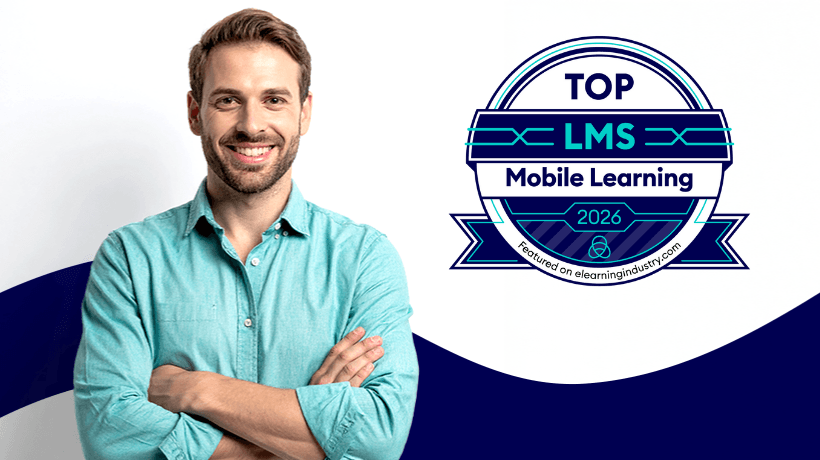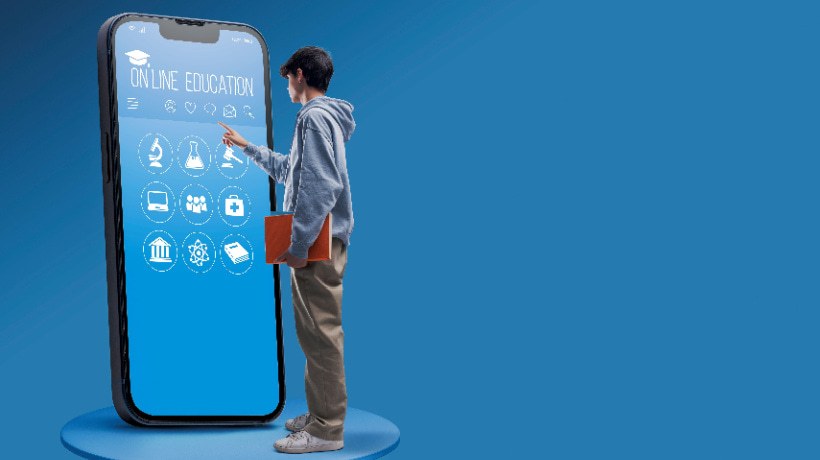Using Mobile Learning Apps To Boost Learner Engagement
Corporates are leveraging the benefits of mobile apps as powerful Learning Management Systems to boost workforce engagement and knowledge retention, bridge knowledge gaps, improve workplace performance and align with their dispersed workforce. Consequently, this enables learners to undergo training at the point of need, even on the go.
Mobile Learning Is Here To Stay: How Do Learners Respond?
Driven by robust software, the latest hardware, and evolving demands of modern learners, the opportunities for Learning and Development are also increasing significantly. The continuous need to deliver Just-In-Time learning through mobile devices creates an incredible environment for growth. With technological advancements in every industry vertical, the scope of mobile content delivery is improving. There are numerous benefits to utilizing a mobile LMS to deliver effective corporate training solutions. These include:
1. Gaining A Competitive Advantage
In this tech-savvy world, organizations need to attain a competitive edge by adopting innovative technologies. Therefore, effective corporate eLearning programs are delivered to retain maximum learners, improve workplace efficiency, and increase in overall business sales. With the advent of the mobile LMS, training has become more flexible and convenient, thereby enabling learners to carry training with them, wherever they go.
2. Optimizing Knowledge Retention
The new-age learner is on constant strive for learning new things and growing. A mobile LMS delivers training programs to retain optimal knowledge. With the incorporation of images, audios, and animations, the training modules help to boost overall workforce engagement. Also, delivery of short content nuggets through mobile devices enable learners to quickly digest the information and recall the content whenever and wherever required.
3. Motivating Learners To Perform Better
Using mobile-based eLearning platforms, employees can analyze their performance at the workplace. There are certain progress bars which show the status of training completed, scores achieved by individuals, helping them understand where they lag. The result can also be viewed by managers, enabling them to provide instant feedback. Based on individual performances, either the LMS automatically assigns relevant training to employees or learners can also take up courses themselves. As a result, this aids learners to perform better towards attaining their business goals and delivering quality output.
4. Bridging Knowledge Gaps Of Learners
Lack of workforce training also lacks the essential dynamics to align with varied business objectives. By deploying robust mobile LMS, learners can access the performance assessment module to address their problem areas and bridge the skills-gaps. Modern learning platforms allow employees to personalize their learning paths as per their bespoke needs. Consequently, this helps the learners to focus on the weak areas, learn at their own pace, and bridge knowledge gaps. Few learners may prefer bite-sized content delivery or blended learning while some may engage more in a gamified learning environment. When the LMS caters to personalized learning needs, effective eLearning strategies help to fill knowledge or skills-gaps without any hassle.
5. Connecting With The Global Workforce
Industries such as an automobile, retail, and others rely on the globally dispersed workforce to achieve their business goals. The distributed workforce strives towards better collaboration and accessibility to training content at the point of need. Therefore, organizations deploy mobile LMSs to streamline the entire training process, while also ensuring interaction between individuals. No matter what the location is, the distributed workforce can easily access mobile LMSs which provide multi-lingual support for a better understanding of the training context. So, multi-language support allows the extended workforce to choose eCourses in their local language, thereby removing the geographical barriers and bridging communication gaps.
In today’s ever-evolving digitized world, mobile learning is here to stay. As per the global research conducted by Ambient Insights, mobile learning revenues would triple in 32 countries by 2019 [1]. When it comes to the future of mobile learning apps, organizations focus on several workforce training strategies. Some of these include:
6. Using AR-Based Mobile Apps
The widespread adoption of Augmented Reality-based mobile learning apps helps to increase overall employee efficiency and business competency. For instance, sales-driven organizations design innovative AR-based mobile apps to sell different products to the target audience. Learners can install the app on their personalized mobile device, scan the product details, and play the animated video showcasing features and benefits of the product. The whole scenario aids customers to gain in-depth knowledge on specific thereby leading to better customer satisfaction and business sales.
7. Providing Micro-Assessments
Training is not complete even when learners access relevant training courses. So, micro-assessments in the form of short quizzes and questionnaires are provided at regular intervals to learners once they complete training. The small chunks of assessments delivered via mobile LMS motivate learners to improve their workplace skills, retain relevant knowledge, perform better.
8. Coaching On Your Mobile Device
Mobile coaching is all about getting expert advice at the point of need. For instance, before undergoing a critical surgery, surgeons can access a mobile coaching feature on their LMS. In this, a real expert gives a quick review of the entire procedure, thereby providing the correct guidance to the surgeons and boosting their confidence in treating their patients more efficiently.
As the digital workforce is native to innovative technology and equipped with a personalized mobile device, it becomes easier to undergo training anytime and anywhere. Technology is transforming the way the new-age workforce seeks new information across their smartphones and tablets and apply what they learn in real-life scenarios. As most of the L&D teams are shifting towards modern training landscape, the utilization of mobile learning apps serves as a viable solution in delivering tailored eLearning solutions.
References:
[1] Worldwide Mobile Learning Market Executive Overview (http://www.ambientinsight.com/Resources/Documents/AmbientInsight-2014-2019-Worldwide-Mobile-Learning-Market-Executive-Overview.pdf)
Suggested Further Reading:
- Mobile eLearning: Best Practices (http://www.icslearninggroup.com/sharedResources/Documents/ICS%20Whitepaper%20Understanding%20Mobile%20Learning.pdf)









